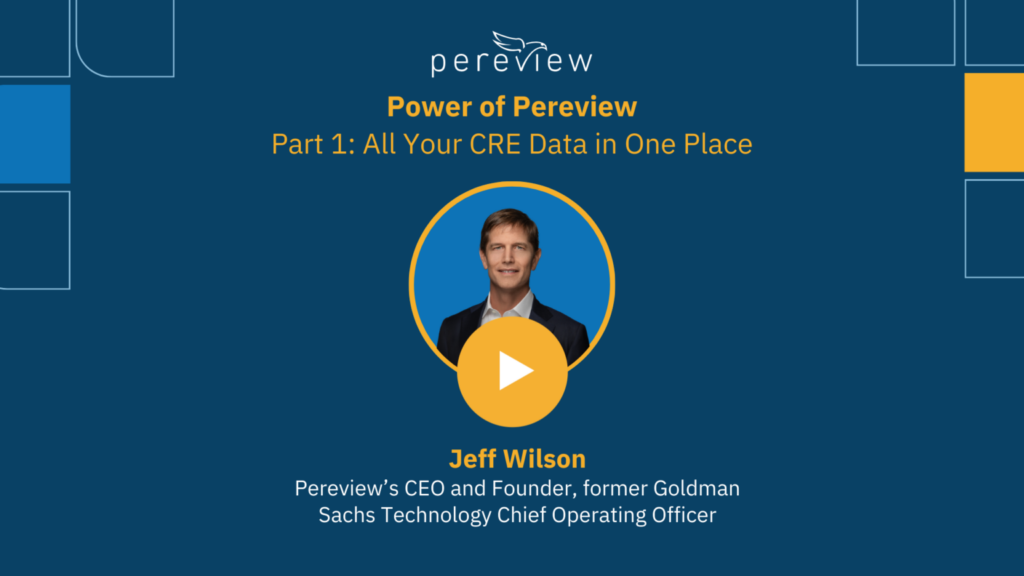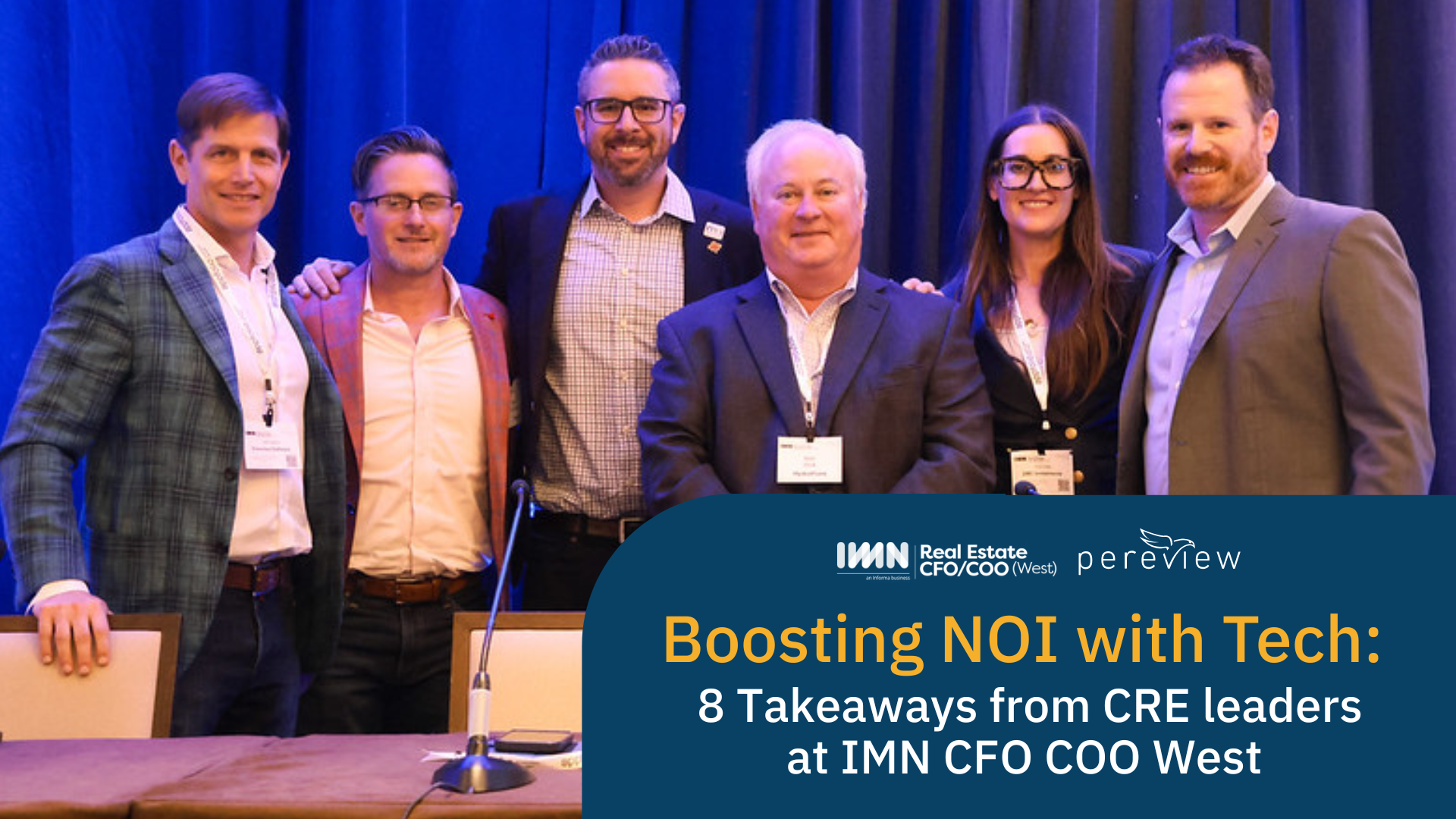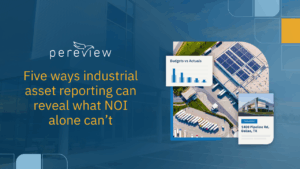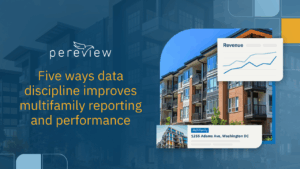At this year’s IMN Real Estate CFO/COO Forum (West), industry leaders gathered for a candid conversation on how technology and innovation are helping real estate firms improve net operating income (NOI) in a challenging market.
Moderated by David Blumenfeld, co-founder of NextRivet, the panel included Erin Little, CFO at BMC Investments; Simon Herrmann, SVP at PearlX; Ben Slick, SVP of business development at HydroPoint; Arik Kogan, Head of Specialist Solutions Architecture at MRI Software; and Jeff Wilson, founder and CEO of Pereview.
The discussion centered on the real-world impact of new tools – from automation and AI to utilities and reporting – on operational efficiency and investment performance.
Tech adoption is accelerating – but still complex
While the commercial real estate industry has historically been slow to adopt tech, panelists agreed the momentum has shifted. Firms are now more open to exploring new tools, especially as market headwinds increase the pressure to do more with less.
Yet implementation remains a challenge. Many teams lack dedicated IT staff or tech-buying expertise, which slows progress.
“There’s a buying audience whose main job is not to buy technology,” said Jeff Wilson. “They’re not educated on it and that creates friction.”
Centralized data is step 1
Erin Little of BMC Investments shared how her firm’s decision to sell its in-house property management arm left them without a unified view of their portfolio. As a result, they invested in Pereview to centralize data, implement workflow tools, and better manage outsourced accounting.
The takeaway? Without a single source of truth, it’s difficult to make fast, confident decisions about performance or strategy.

Automation creates real efficiency
Real ROI isn’t just about cost savings – it’s about eliminating repetitive work and enabling teams to focus on higher-value activities.
“It’s not just about saving money – it’s about freeing people up to do what they’re best at,” he said. “You centralize the data, automate the process, and suddenly teams have time to actually manage the assets, not chase spreadsheets.”
Clients using Pereview have reduced reporting prep time by as much as 90%, freeing up staff to focus on decision-making and investor communications.
Not every tech investment has a clear ROI – and that’s OK
Panelists acknowledged that not all technology decisions result in immediate or quantifiable returns. Many systems are critical for managing compliance, reducing risk, or supporting staff retention.
“Some ROI is fuzzy,” Wilson noted. “You just know it will improve productivity, even if it doesn’t show up in a budget line tomorrow.”
That doesn’t mean the impact isn’t real – especially as tenant expectations evolve and competitors modernize their operations.
Intelligent ops are the new frontier
The conversation also touched on operational efficiencies beyond finance. From leak detection and smart irrigation to tenant behavior analytics, tools that monitor energy and water usage – or track retail foot traffic – are helping owners control costs and boost value.
Retail operators, for instance, are using video analytics to understand customer behavior, optimize staffing, and negotiate smarter leases.
And water, often overlooked, was flagged as a rising concern – especially in markets with aging infrastructure and rapidly increasing rates.
Firms need help making the business case for tech
Because many real estate professionals aren’t seasoned software buyers, it’s often difficult to quantify the payoff of a new platform. One panelist described how their team now creates ROI models for clients, helping them map pain points and cost savings before committing to a solution.
This kind of support is crucial to building internal consensus and moving forward with confidence.
Real world results: doing more with less
Wilson shared a case study of a Pereview client that scaled from $20 billion to $50 billion in AUM while growing headcount by only 10%.
“We’ve done studies with firms that doubled AUM without adding headcount,” Wilson explained. “When you automate manual tasks like assembling investor reports or aggregating lease and loan data, teams can focus on optimizing assets – not fixing #REF errors in Excel”
Final thoughts: innovate or fall behind
As the conversation wrapped up, panelists reflected on both the promise and pressure of today’s tech landscape.
From looming AI copyright lawsuits to the pace of change in tools and workflows, uncertainty remains. But standing still isn’t an option.
“When you put Excel in its proper place – as a modeling tool, not a database – you unlock the operational efficiencies that drive growth,” Wilson said.
Technology isn’t about replacing people – it’s about empowering them. And for firms looking to protect margins and scale smartly, it’s fast becoming a competitive imperative.



